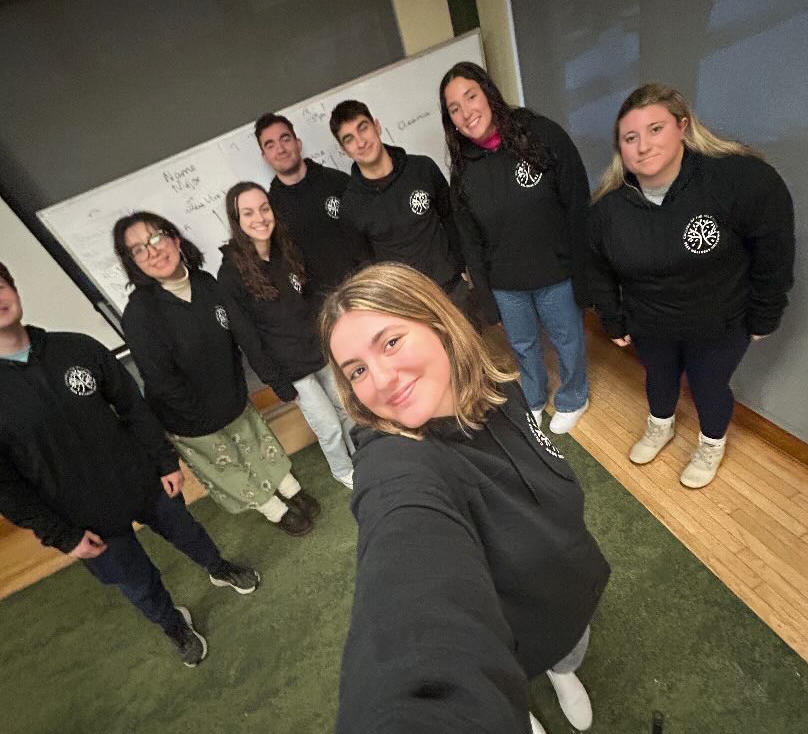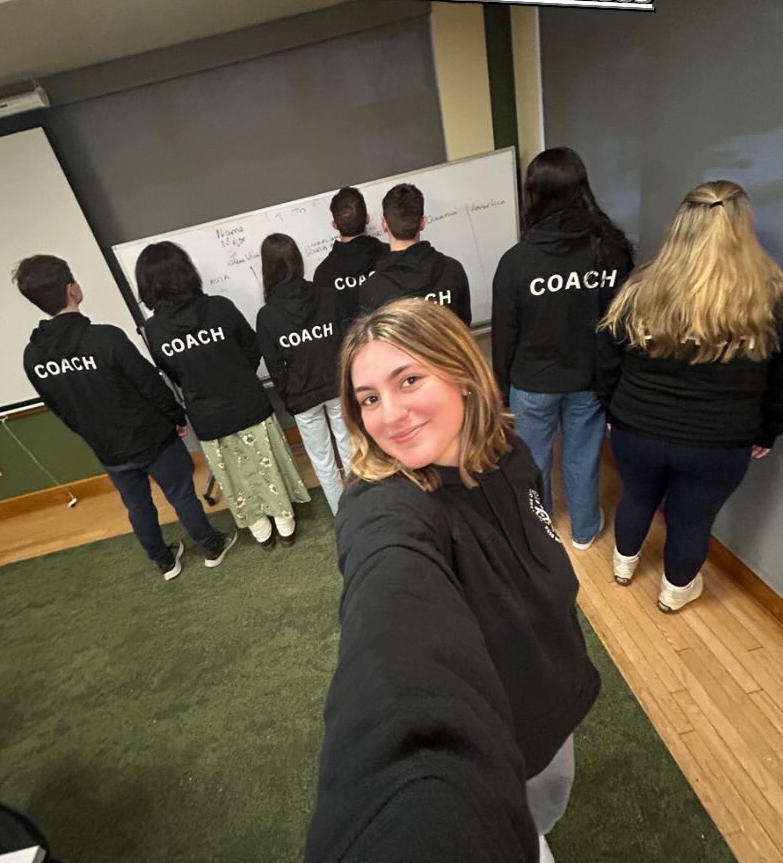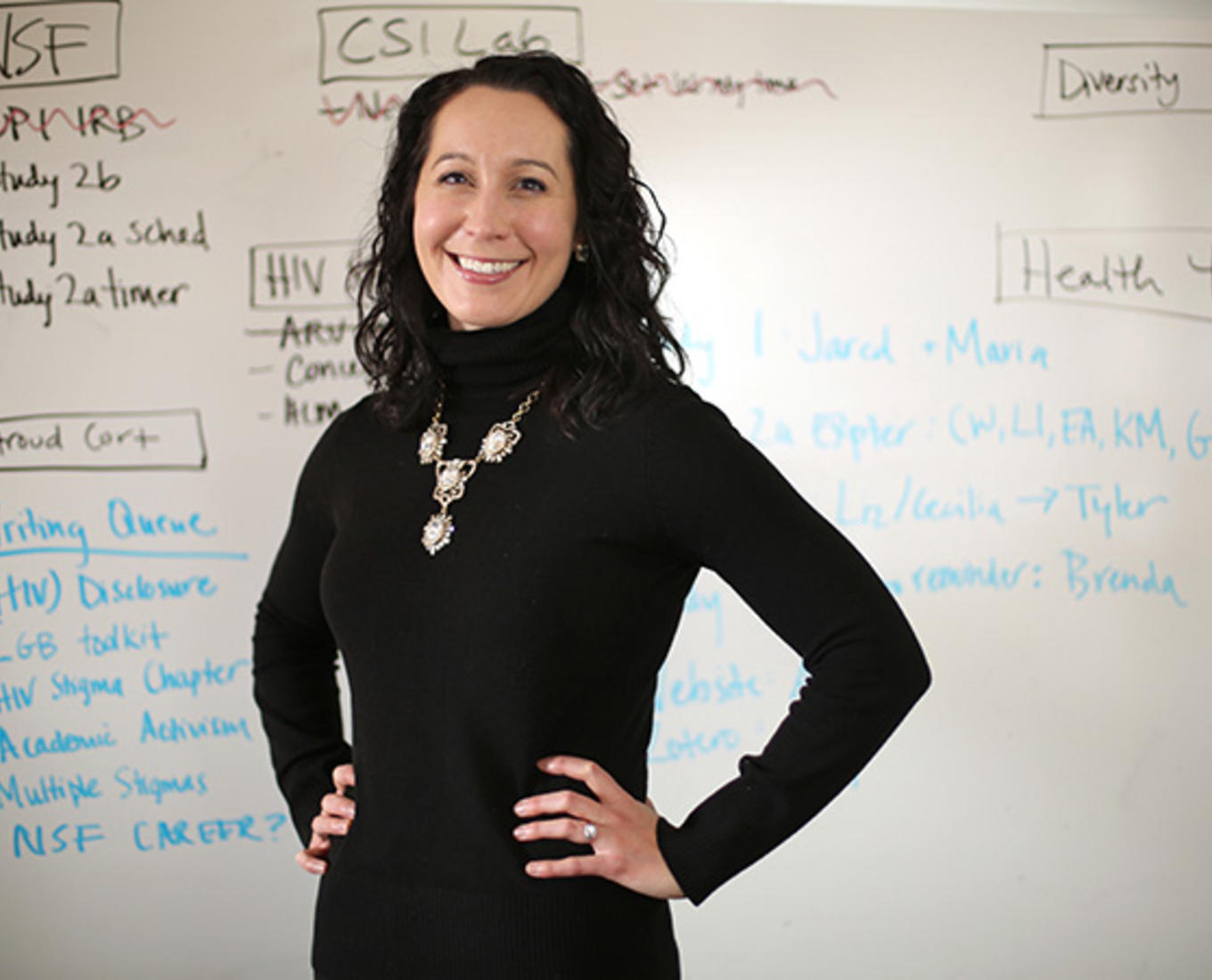As a twin, Michael Greco ’25 always felt like he had a built-in support system in his brother, but said there were times he felt he needed to talk to someone outside his close circle. He wanted to talk to someone who was more of a neutral party and who was also his age and had similar experiences.
“The way I look at it, everyone in life and in college needs a resource or a person to talk to at the simplest level,” Greco, a Chinese and political science double major, said.
Finding that nonjudgmental sounding board was priceless for him, he noted, so when the opportunity arose in the spring 2023 to be part of a new peer wellness coaching program at Holy Cross, he knew he wanted to be part of it.
“It’s not a weakness to come talk to someone and look for help. It’s a way to improve, better yourself and gain a new perspective. Peer coaching is a resource that lets you work through a problem with someone outside your friend group,” he said.
In October 2023, Greco and 12 other students became Holy Cross’ first group of peer wellness coaches, launching the program under the oversight of Elizabeth Drexler-Hines, director of student wellness education, and Joy LaGrutta, associate director, and with support from a group of alumni focused on improving access to mental health services for students.
According to Drexler-Hines, Holy Cross provides multiple services for students struggling with wellness-related challenges. The goal of the peer wellness coaching program is to help students build coping skills, handle challenges as they come, manage stress and successfully navigate relationship issues. Working through these items with peers who have lived similar experiences can take the pressure of formality out of the process and make it more of a conversation.
“If they can learn and develop these skills now it will help them in the future,” Drexler-Hines said.
The peer coaches are not licensed and are not considered confidential; however, they receive training to keep information private, make appropriate resource referrals and consult with their advisors if they have concerns. “We want to make sure they feel comfortable and confident in their role and they know who to talk to if they’re concerned,” Drexler-Hines said.




